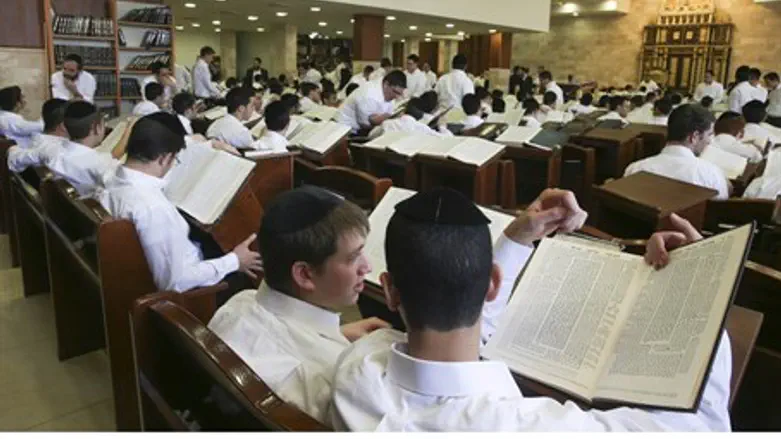
Proponents of the drive to require hareidi-religious yeshiva students to enlist in the IDF expressed satisfaction Tuesday following a Supreme Court ruling that will defund yeshivas whose students do not enlist. It had been expected that the funding would continue until the law regulating hareidi draft, still in committee, was passed.
The ruling states that the Education Ministry can no longer transfer funds to be used toward the education of students aged 18-20 if the students are eligible to enlist in the IDF but have failed to do so.
“The Supreme Court has made it clear to the Knesset that even its patience has a limit, and it will no longer allow hundreds of millions of shekels to flow to yeshivas in violation of the law,” declared Uri Regev, head of the Hiddush organization for religious freedom and former head of the Reform movement in Israel.
“Ever since the cancellation of the Tal Law one and a half years ago the state has been violating the law by not enlisting yeshiva students,” he explained, adding, “The government adds insult to injury by funding them.”
Hiddush’s Vice President of Research and Information, Shahar Ilan, estimates that the new ruling will affect roughly 10,000 students – meaning that yeshivas will lose a total of roughly 25 million shekels a year in government funding.
Government officials have decided against forcibly enlisting hareidi-religious yeshiva students, choosing instead to give Members of Knesset more time to create new legislation in the matter.
The Knesset’s Equal Burden of Service Committee has been working to draft a bill on the controversial subject of hareidi enlistment. Among other things, MKs must decide what sanctions hareidi yeshiva students should face if they fail to enlist in the IDF; several hareidi leaders have warned that the overwhelming majority of hareidi yeshiva students will go to jail rather than join the army.
Hiddush, along with the Movement for Quality Government, and other organizations decided to bring the issue to a head and appealed to the Supreme Court, asking it to order the state to draft hareidi men immediately, rather than waiting for new legislation.
The attorney representing the appeal, Gilad Barnea, said Tuesday’s ruling is cause for hope for his group. “This is an important ruling that sends a clear message… The court has made it clear that it will not tolerate a situation where someone who is obligated to perform military service does not fulfill that obligation, yet continues to get money or other support from the state,” he said.
“We assume – and hope – that this decision will motivate the government and the Knesset to finally finish the legislative process,” he added.